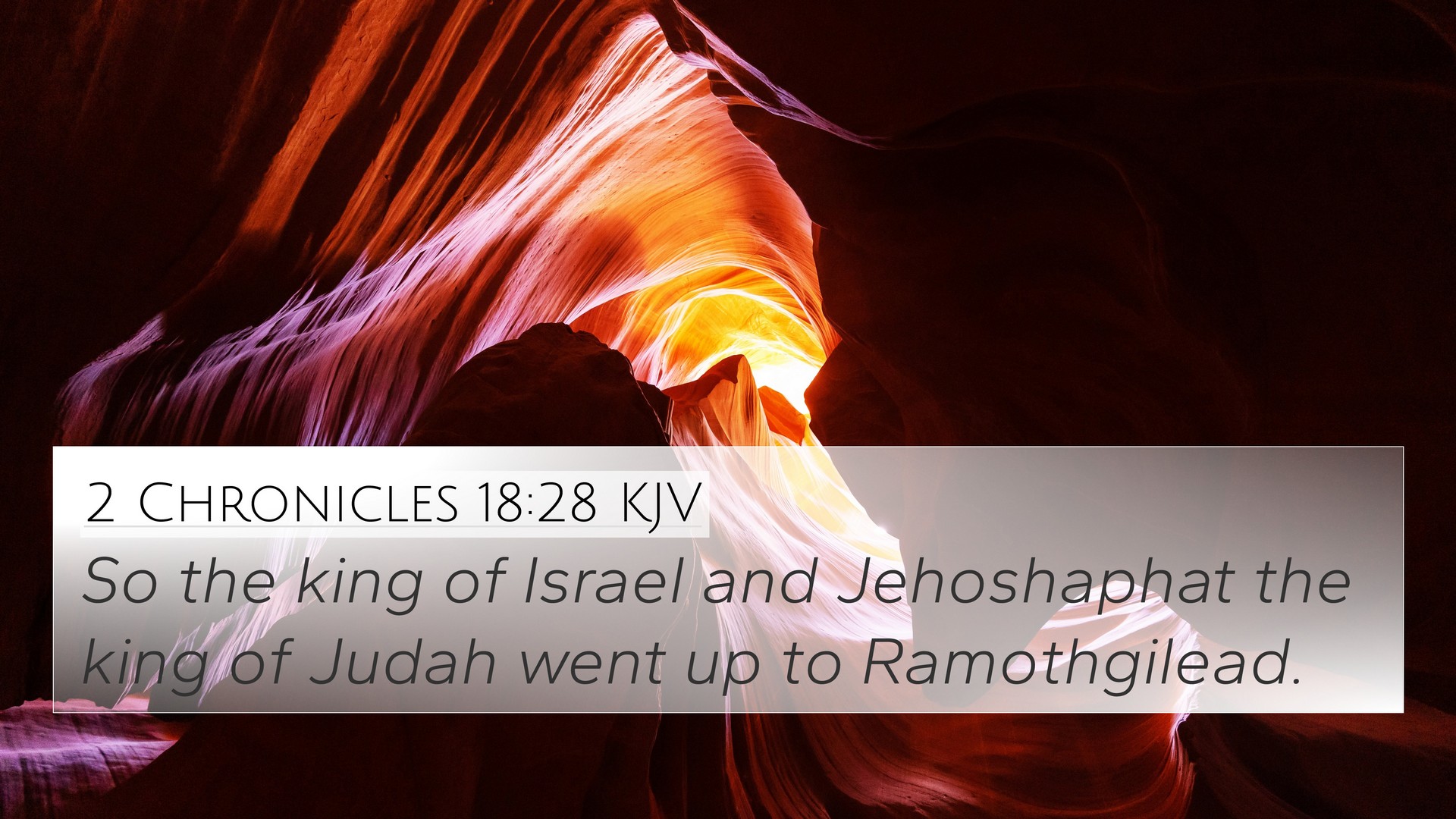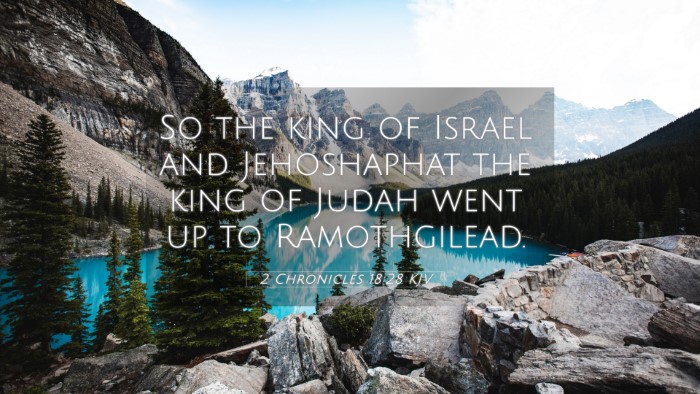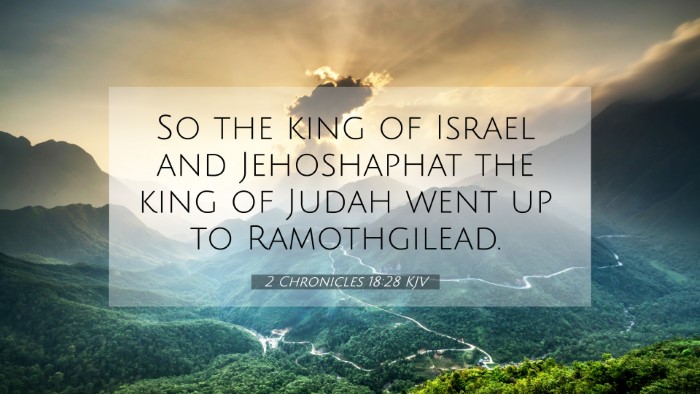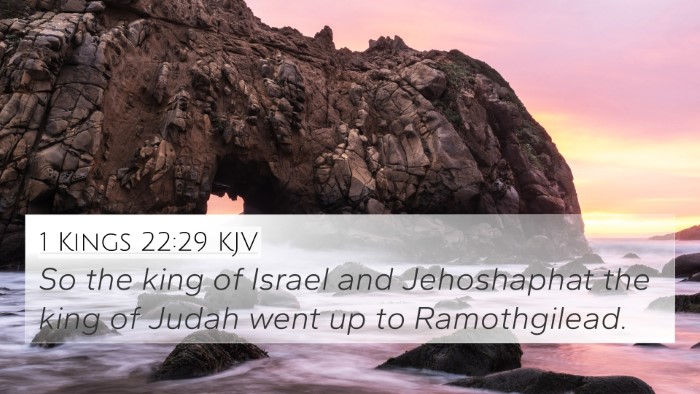Understanding 2 Chronicles 18:28
2 Chronicles 18:28 reads: "So the king of Israel and Jehoshaphat the king of Judah went up to Ramoth-gilead." This verse describes a collaborative military venture between two kings, emphasizing the alliance formed between the northern kingdom of Israel and the southern kingdom of Judah, which sets the stage for the events that follow in the narrative.
Contextual Background
The historical context of this verse is important to understand its significance. King Ahab of Israel is seeking help from King Jehoshaphat of Judah to fight against Ramoth-gilead, an important city that had been lost to Aram (Syria). This partnership highlights political alliances during a tumultuous time in Israel's history, where warfare and struggles for territorial control were prevalent.
Commentary Insights
Insights from public domain commentaries shed light on several themes in this verse:
- Alliance and Leadership: According to Matthew Henry's Commentary, the alliance signifies a desire for strength through unity, but it also foreshadows the dangers of aligning with ungodly leadership, as Ahab is not known for his righteousness.
- The Role of Prophecy: Albert Barnes points out that prior to this moment, there had been warning voices against the impending battle, further suggesting that the kings were ignoring the prophetic voice, which often leads to dire consequences in biblical narratives.
- Fate of Israel and Judah: Adam Clarke emphasizes that this moment is a part of a larger narrative about the decline of both kingdoms. The alliances formed are not merely about military strength but indicate a deeper moral and spiritual decline.
Bible Cross-References
This verse can be linked with several other scriptures to broaden understanding:
- 1 Kings 22:1-4: This passage recounts the same alliance and shared military goals, providing further context to the actions of Ahab and Jehoshaphat.
- 2 Chronicles 18:1: This verse introduces the alliances that Jehoshaphat formed and sets the stage for the subsequent events concerning his judgment.
- 2 Chronicles 19:2: Jehu the son of Hanani warns Jehoshaphat of the dangers of his alliance with Ahab, which underscores the consequences of such partnerships.
- Proverbs 13:20: This verse reflects the wisdom in choosing one's companions carefully, pertinent to Jehoshaphat’s decision to ally with Ahab.
- Isaiah 8:12-13: This passage warns against alliances that lack divine guidance, resonating with the choices made in this narrative.
- 2 Chronicles 20:35-37: The aftermath of the battle that arises from this alliance illustrates the dire consequences of ungodly partnerships.
- Jeremiah 23:14: This verse speaks about the wickedness of political leaders, which ties into the characterization of Ahab.
Thematic Connections
The overarching themes present in 2 Chronicles 18:28 can be summarized as follows:
- Inter-Biblical Dialogue: The connections between Old and New Testament leaders often show the moral failures arising from poor alliances.
- Biblical Leadership Lessons: The decisions of Jehoshaphat reflect the challenges of leadership—aligning oneself with the righteous versus the unrighteous has eternal implications.
- Prophecy and Divine Will: The role of prophets in these narratives highlights the need for leaders to heed divine counsel amidst decisions of warfare and alliance.
Conclusion
2 Chronicles 18:28 serves as a pivotal moment in the scriptural narrative that illustrates the complexities of political alliances in the context of faith and morality. The reflections on this verse remind readers about the importance of discerning the influences and contexts surrounding leadership decisions. By cross-referencing this scripture with relevant Bible verses, we can deepen our understanding of the implications of these alliances and what they mean for today's believers.



